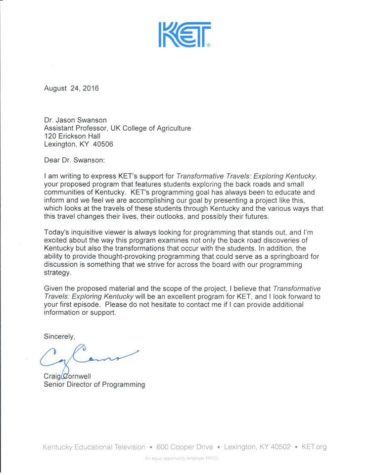5 Myths about Studying Abroad
October 16, 2017
As an ambassador for education abroad, I get asked many questions about studying abroad that are based upon misconceptions. This article will bust the top five myths, and soon enough you will be packing your bags for a semester abroad!
Myth #1: Certain majors cannot study abroad
Reality: All majors can find a program to suit their studies. There are many different subjects offered in study abroad programs from engineering to art history. Even majors with strict requirements can find programs that will earn applicable credit. I have several friends that are biology majors who took science courses and labs in their study abroad program. All students in any field will benefit from their study abroad experience.
Myth #2: “Studying abroad will put me behind”
Reality: If you plan, studying abroad will not put you behind graduation, but will help you! Studying abroad has earned me credit towards my major and has advanced my studies. I studied abroad twice and I am still going to graduate in four years. I have friends that studied abroad for an academic year and will still graduate in four years.
Myth #3: “I have to speak the language”
Reality: While speaking the language of your host country may be helpful, this is not a requirement. Many classes offered abroad will be taught in English. Do not be discouraged from studying abroad in a country where you do not know the language. If this is the case, this is a great opportunity for you to learn a new language!
Myth #4: The best time to study abroad is junior year
Reality: Students can study abroad at any time that’s best for their class schedule. There are summer, semester, winter, and year-long programs. I studied abroad during the summer after my freshman year and studied abroad again the next summer. I have friends that studied abroad their sophomore, junior, and even senior year!
Myth #5: “There is no way to fund my program”
Reality: The cost of the program depends on the program provider, length, and location. Some study abroad programs can be comparable to tuition at UK. There are many scholarships available for studying abroad. The UK Education Abroad website has a list of all the UK scholarships available. Additionally, there are outside scholarships that you can apply to. Generally, scholarships and financial aid that you have for the semester apply to semester-long study abroad programs. Be aware of the early deadlines for scholarships.
Studying abroad will provide you with new cultures, languages, and friends. Not only does studying abroad make you more marketable to future employers, but it will give you an unforgettable experience and may open the door for new opportunities.


















































































































































